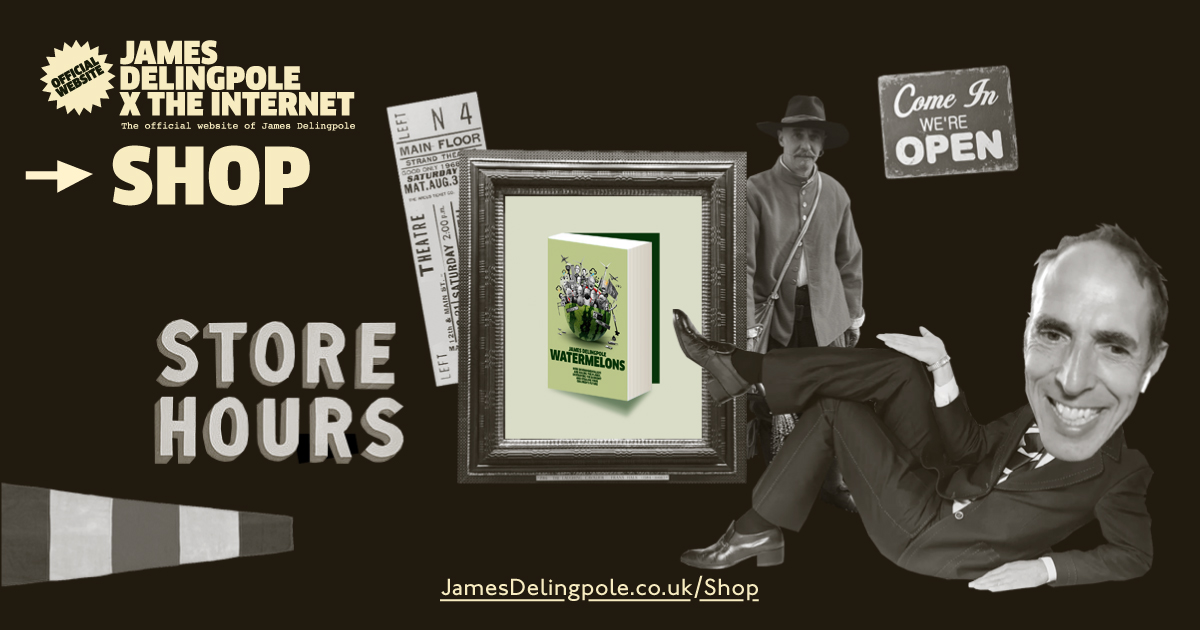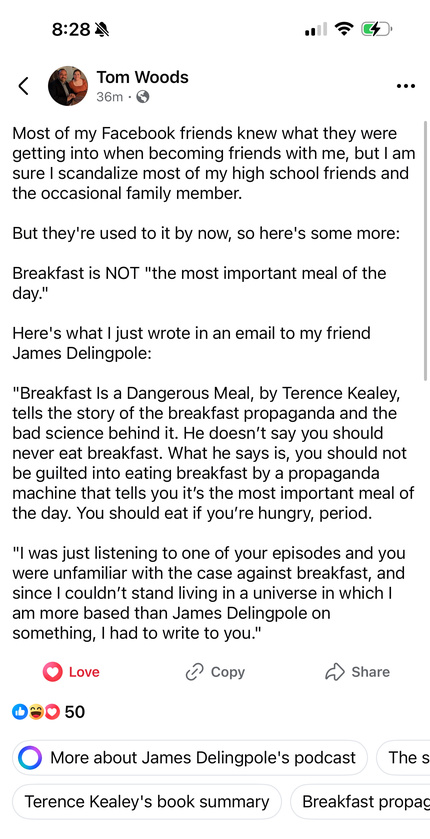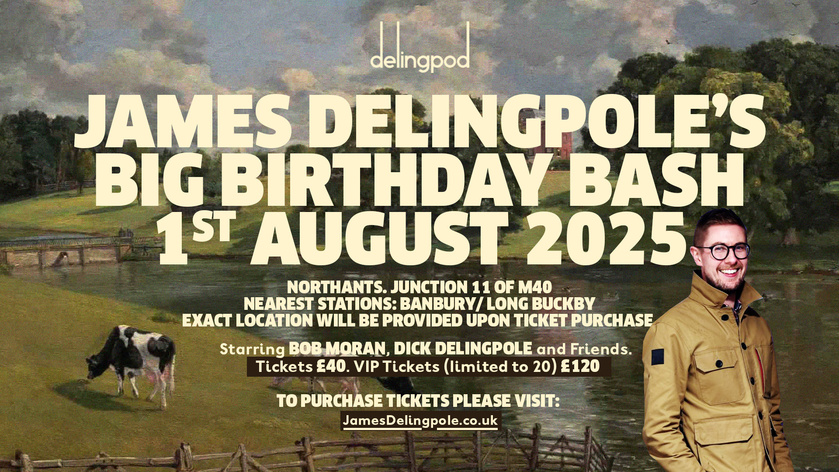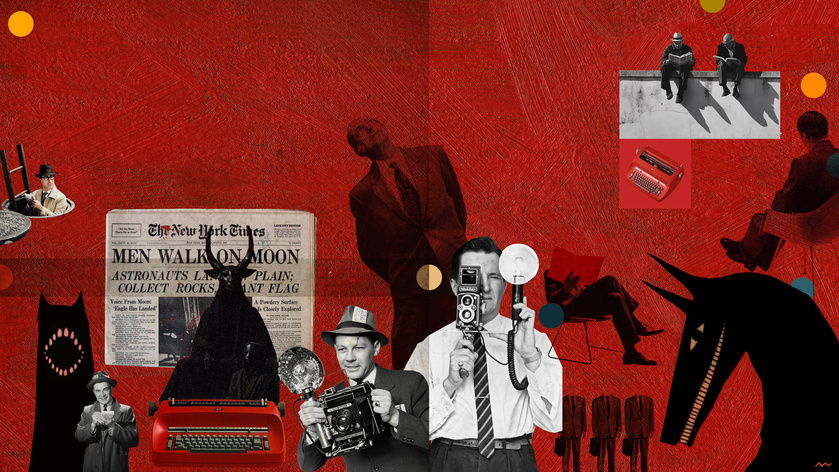Put Not Your Trust In Jordan Peterson
One of the more disappointing gigs of my life was An Evening With Sam Harris, Jordan Peterson & Douglas Murray at the O2 arena in 2018. It had been billed as ‘the Woodstock of live speaking and debate’ but, just like its rainwashed predecessor, it was all hype and no trousers. I walked out half way through, which was a bit embarrassing, given that I was in one of the more visible front row seats, that the PR from whom I’d got my free tickets was nearby and that Douglas was a friend.
In my head - and a subsequent article - I persuaded myself I’d quite enjoyed it and that I just needed to leave early because the O2 was miles from civilisation and I wanted to get back home. In my heart, though, I knew it had been shit. Harris had droned on, as he always does, about Marcus Aurelius. Peterson had been abstruse, remote, obfuscatory - by which I mean he was using lots of words, in that annoying wheedling voice of his, to tell us very little. And, like Led Zeppelin not playing Stairway To Heaven, he was determinedly refusing to offer any gobbets of juicy red meat to his puppyishly eager and forgiving young male audience. Douglas was feline and quite funny, but that was about it.
So why didn’t I say at the time that the Emperor was wearing no clothes? Because back then I wanted so badly to believe that he was. Peterson, I thought, just had to be a good thing because lots of people on my side of the argument, all the edgy right-wing contrarian types, were saying he was. We’d read - or even written - many pleasing articles celebrating how well he was doing (earning well over a million a year playing huge arenas like this one), which was just great because we were used to living in a culture where only liberals and leftists were rewarded. Peterson was our guy because though he came from leftie academe, he was sticking it the libs. He’d destroyed that prissy left-wing interviewer called Cathy Newman who’d tried to get the better of him on Channel 4 news; he was down with Pepe the Frog; his bestselling book was punchy, savvy, digestible; he said clever, funny stuff about lobsters. He was leading the backlash against the destruction of Western Civilisation.
Except, we now know, he wasn’t. Peterson is a bad actor - and probably was so all along.
Vox Day was ahead of the game on this as he so often is. As early as 2018, he published the (so I gather: I really must read it) corrosive and utterly damning Jordanetics: A Journey Into the Mind of Humanity’s Greatest Thinker. It has taken most of the rest of us till now to catch up.
For me, the clincher was watching a video called Jordan Peterson Dismantled, which argues, plausibly I think, that Peterson’s goal is not to bolster the political right but to neutralise it. That was made three years ago, so I’m a bit late to the party. The reason I’m thinking about him now - to be honest I’d pretty much stopped doing so since that 2018 snoozefest - is because one or two people on my side still appear to be taking him seriously. And I don’t think they should. He’s a menace.
When I mentioned this in my Telegram channel, with reference to the Jordan Peterson Dismantled video, some contributors got quite defensive. Almost too defensive, I thought. One said: “This video is total nonsense and the presenter comes off like he has a fine collection of white hoods and robes in his closet. Ignore this nonsense.’ Perhaps I’m being paranoid - it’s the natural state for anyone who is awake - but this kind of ad hominem argument has the whiff of 77th Brigade about it
Let’s just suppose, though, for a moment that Peterson’s defenders are speaking in good faith. How can I really be so sure that he’s a wrong ‘un? Why can’t I give him the benefit of the doubt until more evidence emerges? Shouldn’t we just accept that not everyone on ‘our side’ is going to be right about everything? Shouldn’t we allow him a bit of leeway given all the health problems he’s been having? And anyway, isn’t the main weakness of our side that we’re endlessly purity-spiralling and witch-hunting and writing allies off as ‘controlled opposition’ when what we really should be aiming for is strength through unity?
I’m sympathetic to some of these arguments. I agree on the whole with Aisling O’Loughlin’s strategy: that we should take what we find useful from such figures and discard the rest. Otherwise the danger is that we end up driving ourselves to distraction obsessing about trivia like whether Bill Cooper was right about Alex Jones [for the record, I think he probably was], about whether Russell Brand is now a hero or still an Illuminati shill, about whether David Icke is a revealer of truth or a Luciferian psyop, and so on and so forth.
But Jordan Peterson, I think, is a special case. If, as the Jordan Peterson Dismantled video - and presumably also, Vox Day’s Jordanetics - suggests he is weakening the Resistance by luring some of its best potential fighters (angry young men) into a containment/neutering pen, then Houston we have a problem. The man has undeniable influence. If he’s working for the enemy, then he needs to be exposed.
I’ll let the Jordan Peterson Dismantled video speak for itself. I think its case is well-made. But even if it weren’t, there are several other things about Peterson that don’t quite sit right with me. Too many things, I’d say, for us to waste any more time giving him the benefit of the doubt.
Peterson is a manipulator. Even if I trusted operators in the psychiatric business - which I don’t: Freud, like his nephew Edward Bernays, did much to weave the evil spell which continues to bewitch so many today - I find the way he uses language very telling. Often, when speaking publicly, he’ll slip into psychiatric jargon which might be fine if he were writing academic papers but which is wholly inappropriate from somebody who fancies himself as a public communicator.
If you want in good faith to popularise important truths and reach the widest audience, then clarity is all. Peterson’s style smacks to me of Belial-like casuistry designed to deceive rather than illuminate. And also of someone exploiting his target audience’s insecurities. He’s not after the top-tier thinkers, who might too easily see through him. Rather, he’s aiming at a less intellectually secure group, the kind that might go: “I don’t understand everything he’s saying, which must mean he’s really clever and I should make him my guru.”
Then there’s all the circumstantial stuff. The Illuminati hand signals; the ‘take the damn vaccine’; the banning of speaker Faith Goldy from a free speech event he was promoting; the spectacular, sudden, almost unwonted (by someone allegedly on ‘the right’) sucess of his book; the rock star promo; the love-in with Netanyahu…
In isolation, we might find plausible excuses to explain away these mistakes, or accidents, or lapses of judgement. Cumulatively, though, they begin to look like rather more than carelessness.
What it comes down to ultimately, though, is discernment. My gut was telling me something about Peterson in 2018 but I ignored it because I’d been seduced by the narrative. In 2022, after all that has gone on since, I understand the world much better. I see the patterns. I’m more familiar with concepts like Limited Hangout, Controlled Opposition, gatekeepers. All three of those terms, I believe, apply in spades to Jordan Peterson. And also, I’ve a strong suspicion, to the whole notion of the Intellectual Dark Web. It was a trap. Many of us fell into it. Some remain stuck in it, desperate to convince themselves that’s it not a trap.
So you’re caught in something called a ‘Dark Web’ and you still think there’s nothing amiss? Good luck with that.





















